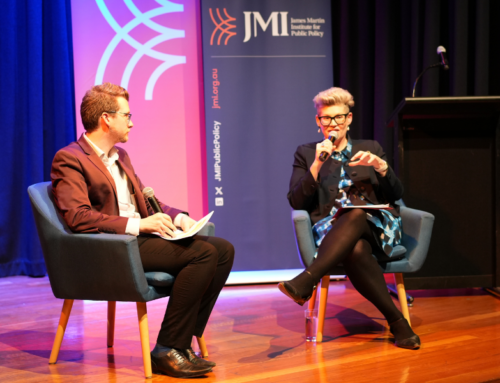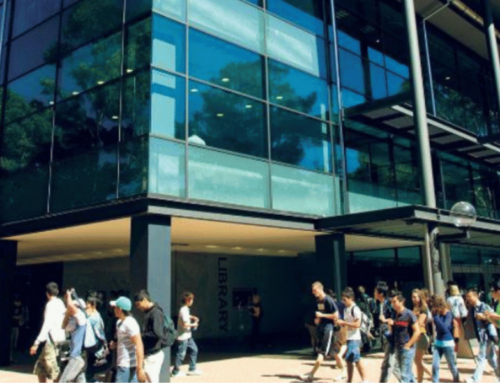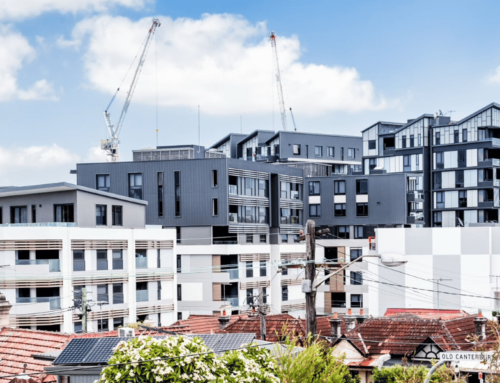
Simon Rowell recently joined JMI as a Senior Policy Fellow (Public Service Stream) from The Cabinet Office in the NSW Government. Simon is an experienced senior executive committed to driving public impact through economic growth and investment across the public, private and non-profit sectors.
Leveraging private investment for industry and innovation is a critical issue for governments worldwide. Amidst slowing productivity growth and private investment levels, fostering innovation beyond technology-driven sectors remains a challenge. Governments have demonstrated they can play a proactive role, as seen during the COVID-19 pandemic and the rise of place-based industry policies. Simon’s research project will explore strategies for harnessing investment opportunities and their implications for the future of industry and innovation in NSW. JMI is supporting his engagement with university experts to then bring key insights and learnings back into his role in government.
You’ve worked as an economic advisor at the highest levels of policymaking in New South Wales for many years. What are some of the most important lessons you’ve learned as an advisor when addressing complex economic challenges and the need to prioritise competing demands?
One key challenge and opportunity stand out. The challenge is that in today’s open, globally integrated Australian economy, it’s hard for governments to control the economy given its deeply interconnected and global nature. The Federal Government, with a $700bn budget and control over tax and company policy in Australia, is not able to control every possible economic event, let alone a state government such as in NSW with a $100bn budget and big responsibilities to deliver core health and education services.
The opportunity is that economic growth can really happen by making practical improvements to the economic conditions of places.
A privilege of working in the NSW Government is you get to know more about different areas and communities in NSW, and how the combination of infrastructure, skills and services can help local economies thrive. Focusing on the place-based level makes it easier to consider the whole future and impacts on communities and then better prioritise what will make a significant difference not just to future jobs, but also to the livelihoods of people there.
What has been your experience in leveraging external expertise for policymaking, and how could this type of collaboration be further enhanced in the future?
There is tremendous expertise within the NSW Government and experts working across vast areas from the environment, to manufacturing, and children welfare policies. The first step is always to try to draw from this wide source of expertise, although it can sometimes take longer than you might like or expect to find the right place given how big it is.
External expertise can complement in-house knowledge. Most approaches involve collaborations with external experts through a structural approach and these can take many forms: from taskforces of learned thinkers that can inform a strategic review, specific detailed questions that experts are commissioned to answer, to consultative fora of stakeholders and community members used to test emerging policy design and implementation.
My experience, however, is that a personal commitment to collaboration also matters – good policymakers stay informed about academic developments and initiatives being tried in other governments in Australia and abroad, keep atop of the news explaining community reactions, and have informal regular conversations with stakeholders. This really helps ground policy work in the relevant context and certainly provides greater reassurance when you have to formulate policy quickly.
You played a crucial role in establishing the first foresight function within the NSW Government. How does this function improve decision-making processes in uncertain and rapidly evolving environments? How do these insights help to inform future-ready policymaking?
I helped establish Shaping Futures as the NSW Government’s first central foresight capability in 2020, along with many other intrepid colleagues. I learned a great deal from this experience in how policymaking can often benefit from zooming out from the immediate policy question to think about how those problems fit into the long-term policy context – I found that trends and scenarios are the ‘bread and butter’ of foresight and provoke important questions in the present day.
In terms of broader trends, will they help or hinder the policy in a given area? It’s easier to propose a solution that will be reinforced by changing demographics or environment trends for instance, whereas policies that seek to buck emerging trends need more comprehensive policy responses. Lower fertility rates, ageing populations, increasing technology applications/adoption and changing climate are driving big changes in government service. Policy initiatives designed to lean into these can work well.
For scenarios, what are the ‘possible’ futures as distinct from the ‘probable’ future? Often, we assume the future will look like a further developed version of the present day, such as forecasting that urbanisation will continue on and on. However, thinking of alternative scenarios can highlight quite different futures. The experience of the COVID-19 era, with the increase in remote working and migration to regional areas, provided a glimpse of the potential “deurbanisation” that could occur, at least temporarily. Policy should be aware of these possibilities and consider whether it still wants to plan based on one future, or be ready to change course if you start getting signals that the future is changing.
Your fellowship with JMI focuses on how to best leverage private investment – or co-funded investment – for industry and innovation. Why did you choose this topic, and how do you plan to tackle it?
This is a critical issue for governments around the world right now. Low productivity growth along with decreasing investment levels persist meaning that innovation – beyond a few technology-driven sectors – is harder to find. Governments have shown during COVID-19 that they can play a more proactive role in supporting new innovations, including through new industry policies such as the US Inflation Reduction Act. Smart use of government investment can help draw in others in the financial and private sectors to shape markets and support innovations that matters.
This is a topic particularly close to my heart. For 6 years, I helped establish Big (now Better) Society Capital in the UK, which is a government-sponsored impact investor that helps shape new markets for investment to address social challenges, such as affordable housing, community development and getting disadvantaged young people into employment. I saw how a partnership approach between charities and investors can help explore important new social interventions, and do more with less. I want to draw on this experience and the rise of other efforts in Australia – and, indeed, across the world – to inform some ideas for NSW.
How does your work with JMI tie in with recent developments in this space, including the Federal Government’s new Future Made in Australia initiative? How do current government budgetary constraints inform your project?
It’s been a fascinating time to start my research, as each day there seemed to be another announcement about a new type of policy support (production tax credits, investment regulation, incentives) to drive the Future Made in Australia initiative. The Federal Government has clearly picked a few industries where it now sees medium to long-term opportunities for Australia, and is willing to deploy a range of tools to achieve this. But this is also backed by a National Interest Framework, which is helping ensure these are the best opportunities to chase.
Competing in the modern global economy with heightened economic competition requires a Team Australia approach. NSW has already been looking at opportunities in developing Net Zero industries, but can now use these vast federal initiatives to boost their local efforts in target industries and the supply chains that underpin them. They can also consider how they can best deploy these to help all communities, including the coal-reliant regions, share the benefits. In partnering with the federal Government and private investors, NSW can get the most ‘bang for their buck’ where investment is appropriate, which will be critical in times of fiscal pressure.
Further, the initial industry priorities in the Future Made in Australia initiative may be only the start, as the investment into quantum computing has shown. This approach can be applied to other industries needed for economic security and resilience. NSW has important opportunities to work with the Federal Government to shape these priorities to bolster manufacturing and other new industries that work for all communities.







